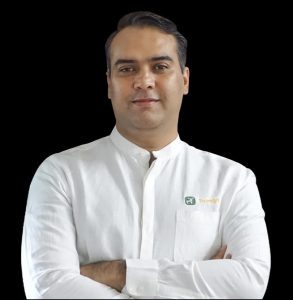
 Tavaga, an investment advisory firm-aiming to demystify finance for its investors. The core team boasts a rich experience in finance & marketing. Tavaga ensures algorithm-based advice accounts for its client’s risk profile & goal tenure. Tavaga ensures transparent & efficient investing in exchange traded funds.
Tavaga, an investment advisory firm-aiming to demystify finance for its investors. The core team boasts a rich experience in finance & marketing. Tavaga ensures algorithm-based advice accounts for its client’s risk profile & goal tenure. Tavaga ensures transparent & efficient investing in exchange traded funds.
Investing at any age basically helps on two fronts — beating inflation (the increasing cost of money that our regular income does not keep up with) and creating funds for a time when regular income would stop. In this context, investing late in one’s life can still work, but the gains would be less.
Atleast, investing late is always better than not investing at all. If our retirement is less than five years away when we start to invest, then it would mean we do it only to save more, bagging whatever fixed-income (from savings schemes, fixed deposits etc.) comes along the way.
Investing in our forties or fifties, however, would give us 10-15 years to retirement. We could then look at the markets (equities, for eg.) as well, beyond fixed-income and small savings instruments. But starting this late would mean stomaching some of the risks that come with such a diversified portfolio. It could make for a more effective, albeit risky, way to go about it.
Calculate the need
Starting late would need a stricter calculation. We have to assess how much monthly income we would need, factoring in inflation of 7 percent (or a higher one for a comfortable estimate in the long run) and aim for returns on investments that would average out to be more than the inflation percentage.
Who are we, riskwise
As with most decisions in life, how we invest should be guided by our fundamental nature. There is no strategy that fits all. Just because we are late to invest should not mean we have to tow a line set for others.
Are we wired to take less risk than some others? If we do not want to roll the dice and take too large a chance, then we are better off accepting a lower pool of money than what riskier investments promise.
The measure of risk-adjusted returns will help us determine the trade-offs between the risk we are willing to take and the return the investment can bring in. Lower risk investments would mean “safe but low” returns and higher risk investments would likely yield higher returns but may also lead to losses. Equities for a late entry
If we are content with a pool of money lower than the one we might have earned starting early, then there is no harm eschewing risk (read: equities) altogether. We could park our savings in low risk instruments such as fixed deposits with large banks.
But starting in our forties-fifties, we might want to make up for lost time, and amass a sum similar to one we would have had investing from our twenties-thirties.
Given we won’t have much time on our hands to make the most of the compounding effect.we would need to invest a sizeable portion in equities. There would certainly be more risk but nothing that a calculated approach cannot mitigate, growing our money enough to beat inflation. It has the potential to give us the best returns of all investment instruments.
As for dividing up investments to diversify, it is often said to put an amount equivalent to our age in debt instruments and the rest in equities. That would mean a 50-60 percent equities play for late entrants.
A ‘100 minus your age’ percentage in equities is yet another thumb-rule used in investing. This simple calculation yields higher investments into bonds and safe assets as the investor ages.
Whether someone is starting early or late, this thumb-rule might serve as a starting point from which we can deviate to take more risk or accept lower returns, according to the investor’s risk willingness.
A late-entry might warrant a precise strategy depending on our needs and goals. Apps such as Tavaga use proprietary algorithms to assess one’s profile and suggest the best ways to invest.
Tavaga is everything you need to start saving for your goals, stay on track, and achieve them in time.
Present income
No matter when we invest, we cannot exceed our regular income and the savings we put away through the years (if at all). But what if we already had a large discretionary income that beat inflation, every month? It would allow us to invest at any age with the sole purpose of maximising our wealth.
For such fortunate ones among us, a diversified higher risk portfolio would fit like a glove. A large discretionary income gives us the leeway to take a chance on high-return-high-risk investments, irrespective of our age.
Invest overseas
ETFs also open up a window to overseas markets. Foreign funds or equities help in mitigating volatility in one country, even if it a fast-developing one like India’s. India’s stock market has also been among the most expensive (index trading at multiples of trailing price-to-earnings ratio), making direct investments expensive from a valuation point of view.
Not meeting high expectations of stellar performance from Indian heavyweights (large caps) can also lead to volatility in the market, bearing down on investors. Hence, looking at foreign equities could help cushion our portfolio, given the less time on our hands to compound our investments.
Dollar assets, if we are to look overseas, help mitigate fluctuations in the rupee as well.
Work to save more
Along with our investments, we have an additional task at hand if we start late – savings. An investor starting late, is no stranger to savings. All the years of earning would have led to savings of some amount because there were no investments to divvy up the money. However, that is all the more reason such an investor needs a relook at her savings approach.
As we approach retirement, we would need to ramp up our savings percentage (of income). It is often advised to keep aside 35-40 percent for those between 50 and 60 years.
Increasing contributions in fixed-income instruments such as Employee Provident Fund (EPF) and Public Provident Fund (PPF) would give our savings a boost.
A little bit of austerity could provide another leg up to pad up savings. After retirement, we might be looking at a more sober lifestyle given there is less time to grow our regular income.
These are some pointers to how we can avoid getting overwhelmed when starting out late. But they are by no means comprehensive. A financial advisor would be the best to streamline our approach for us.




















